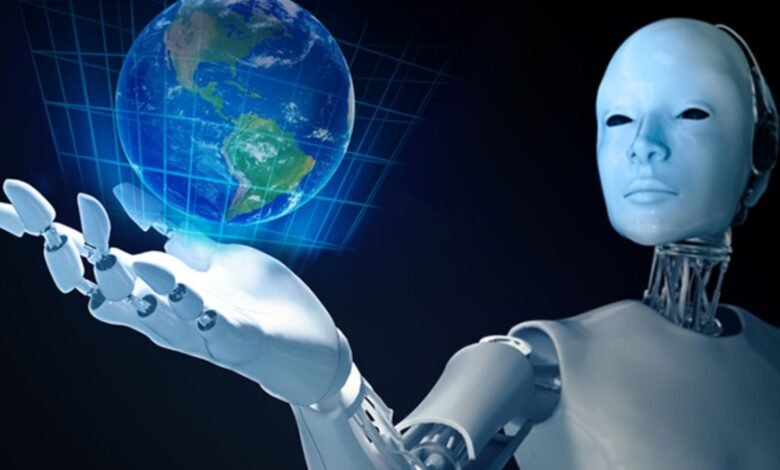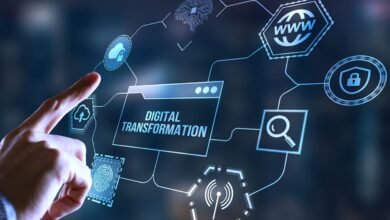The Impact of AI on the Future of Work

Artificial Intelligence (AI) is no longer a concept confined to science fiction; it has become an integral part of our daily lives and work environments. From chatbots assisting customer service to algorithms driving decision-making in finance, AI is reshaping industries across the globe. As AI technology continues to evolve at a rapid pace, its impact on the future of work is a subject of growing importance. This article explores the various ways AI is transforming the workforce, the opportunities it presents, and the challenges it poses for both employers and employees.
The Evolution of AI in the Workplace
AI’s integration into the workplace is not a sudden development but the result of years of advancements in computing power, data analytics, and machine learning. Early AI applications were limited to specific tasks, such as automated data entry or simple predictive analytics. However, with the advent of deep learning and neural networks, AI has become capable of performing more complex tasks that require decision-making and problem-solving skills.
Today, AI is utilized in various forms, from robotic process automation (RPA) to sophisticated machine learning algorithms that can analyze large datasets and generate insights that would be impossible for humans to discern. This evolution has paved the way for AI to take on roles traditionally reserved for human workers, such as in healthcare, finance, and customer service.
The potential of AI to revolutionize the workplace is immense, but it also raises important questions about the nature of work and the skills required to thrive in an AI-driven world. As AI continues to evolve, it is essential to understand how it will impact the workforce and what steps can be taken to ensure that workers are prepared for the changes ahead.
Automation and Job Displacement
One of the most significant concerns surrounding AI’s impact on the future of work is the potential for job displacement. Automation, powered by AI, is already replacing routine and repetitive tasks in various industries. For instance, manufacturing has seen a rise in the use of robots to perform tasks that were once done by human workers, such as assembly line work and quality control. Similarly, AI-driven software can now handle data entry, bookkeeping, and even legal document review, tasks that were traditionally performed by office workers.
This trend towards automation has led to fears that AI will render certain jobs obsolete, leading to widespread unemployment. A study by McKinsey Global Institute estimates that by 2030, up to 800 million jobs worldwide could be lost to automation. Jobs that involve routine, predictable tasks are the most at risk, while roles that require creativity, problem-solving, and human interaction are less likely to be fully automated.
However, it is essential to note that while AI may displace certain jobs, it also has the potential to create new ones. The introduction of AI technologies often leads to the development of entirely new industries and job roles that did not previously exist. For example, the rise of AI has created a demand for data scientists, AI specialists, and cybersecurity experts, among other roles.
The Shift in Skill Requirements
As AI continues to reshape the workplace, the skills required to succeed in the job market are also changing. Traditionally, many jobs required manual labor or routine cognitive tasks, but the advent of AI is shifting the focus towards skills that are uniquely human. These include creativity, critical thinking, emotional intelligence, and complex problem-solving.
Workers who can adapt to these new demands will be better positioned to thrive in an AI-driven economy. For example, while AI can analyze data and make predictions, it is still limited in its ability to understand context and make decisions based on ethical considerations. Human workers who can interpret AI-generated insights and apply them in a way that considers the broader societal impact will be invaluable.
Moreover, as AI takes over routine tasks, there will be a growing need for workers who can manage and maintain AI systems. This includes roles in AI development, machine learning, and data management. Upskilling and reskilling programs will be crucial in helping workers transition to these new roles and ensuring that they have the skills needed to work alongside AI technologies.
Educational institutions and employers will play a critical role in preparing the workforce for these changes. Lifelong learning and continuous professional development will become essential as workers need to update their skills regularly to keep pace with technological advancements.
AI and Workforce Diversity
AI has the potential to impact workforce diversity in both positive and negative ways. On one hand, AI can help reduce bias in hiring and promotion decisions by providing objective assessments of candidates based on data rather than human intuition. This could lead to more diverse and inclusive workplaces, where decisions are based on merit rather than unconscious bias.
However, there is also the risk that AI could perpetuate existing biases if not designed and implemented carefully. AI systems are only as good as the data they are trained on, and if that data reflects existing biases, the AI will likely reproduce them. For example, if an AI system is trained on data from a company that has historically favored certain demographics, it may continue to favor those demographics in its hiring recommendations.
To ensure that AI contributes to greater diversity and inclusion in the workplace, it is essential to use diverse and representative datasets when training AI systems. Additionally, companies should regularly audit their AI systems to identify and address any potential biases. By taking these steps, AI can be a powerful tool for promoting diversity and creating more equitable workplaces.
The Role of AI in Enhancing Productivity
AI is not just about replacing human workers; it also has the potential to enhance productivity by augmenting human capabilities. In many industries, AI is being used to streamline processes, reduce errors, and improve decision-making. For example, in healthcare, AI-powered tools can assist doctors in diagnosing diseases more accurately and quickly, leading to better patient outcomes. In finance, AI algorithms can analyze market trends and provide investment recommendations, helping investors make more informed decisions.
By automating routine tasks, AI allows workers to focus on more complex and creative aspects of their jobs. This can lead to higher job satisfaction and increased productivity, as workers can spend more time on tasks that require human ingenuity and less time on mundane activities. For example, customer service representatives can use AI-powered chatbots to handle routine inquiries, allowing them to focus on resolving more complex customer issues.
Furthermore, AI can help businesses identify inefficiencies in their operations and suggest ways to improve them. This can lead to cost savings and increased competitiveness, as companies can operate more efficiently and effectively. In this way, AI is not just a tool for automation but also a means of driving innovation and growth.
Ethical Considerations and the Future of Work
As AI becomes more integrated into the workplace, it raises important ethical considerations. One of the primary concerns is the potential for AI to exacerbate income inequality. If AI leads to widespread job displacement without adequate support for affected workers, it could result in a growing divide between those who benefit from AI and those who are left behind. Ensuring that the benefits of AI are shared equitably across society will be a key challenge in the coming years.
Another ethical consideration is the potential for AI to be used in ways that infringe on workers’ privacy and autonomy. For example, AI-powered surveillance tools could be used to monitor employees’ activities and behavior in ways that are invasive and undermine their sense of privacy. Companies must strike a balance between using AI to enhance productivity and respecting workers’ rights to privacy and autonomy.
Finally, there is the question of accountability. As AI systems become more autonomous, it can be challenging to determine who is responsible for their actions. If an AI system makes a decision that harms an employee or customer, who is held accountable—the AI, the developers, or the company that uses it? Establishing clear guidelines for accountability and ensuring that AI systems are transparent and explainable will be crucial in addressing these ethical concerns.
Preparing for an AI-Driven Future
The impact of AI on the future of work is both profound and complex. While AI has the potential to create new opportunities and drive economic growth, it also presents significant challenges that must be addressed. To prepare for an AI-driven future, it is essential for workers, employers, and policymakers to work together to ensure that the benefits of AI are widely shared and that the workforce is equipped with the skills needed to thrive in this new environment.
For workers, this means embracing lifelong learning and being open to reskilling and upskilling opportunities. For employers, it means investing in training programs and creating a culture of continuous learning. And for policymakers, it means developing policies that support workers through the transition, such as providing access to education and training, ensuring fair labor practices, and addressing the ethical implications of AI.
In conclusion, while AI will undoubtedly transform the future of work, it is not a force to be feared but one to be understood and harnessed. By proactively addressing the challenges and opportunities presented by AI, we can create a future of work that is more productive, inclusive, and fulfilling for all.



